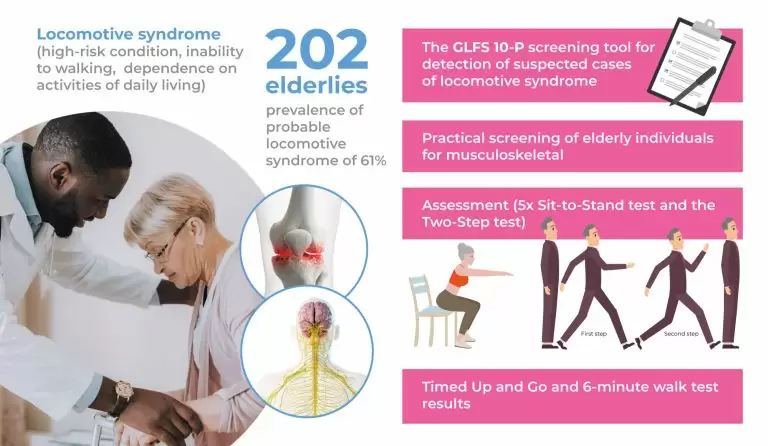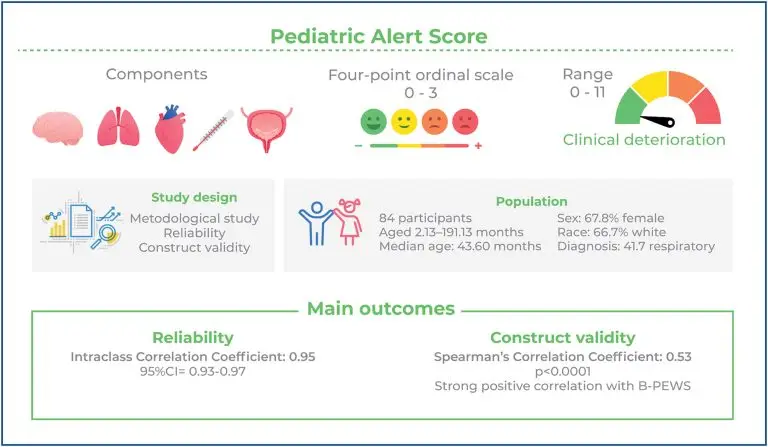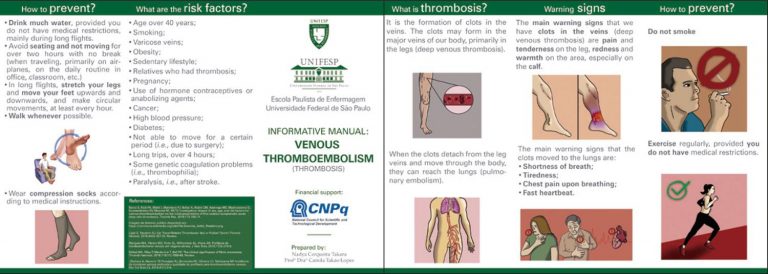05/Jun/2025
Pediatric Alert Score: evaluation of measurement properties
DOI: 10.31744/einstein_journal/2025AO1214
Highlights ■ Clinical deterioration is a global concern related to patient safety. ■ The Pediatric Alert Score includes assessments of neurological, respiratory, and cardiovascular conditions; temperature; and urine output. ■ The Pediatric Alert Score demonstrated high reliability and strong validity with the B-PEWS-Br. ■ The Pediatric Alert Score is a reliable tool for detecting clinical deterioration and improving patient safety. ABSTRACT Objective: To evaluate the construct validity and reliability of the Pediatric Alert Score in hospitalized children and adolescents. Methods: […]
Keywords: Child, hospitalized; Clinical deterioration; Early Warning Score; Pediatric nursing; Reproducibility of Results; Validation study
Algorithm for screening and management of locomotive syndrome in elderly individuals and development of a short version of the 25-question Geriatric Locomotive Function Scale-Portuguese

21/Nov/2022
Algorithm for screening and management of locomotive syndrome in elderly individuals and development of a short version of the 25-question Geriatric Locomotive Function Scale-Portuguese
einstein (São Paulo). 21/Nov/2022;20:eAO6349.
View Article21/Nov/2022
Algorithm for screening and management of locomotive syndrome in elderly individuals and development of a short version of the 25-question Geriatric Locomotive Function Scale-Portuguese
DOI: 10.31744/einstein_journal/2022AO6349
ABSTRACT Objective To develop a short version of the 25-question Geriatric Locomotive Function Scale-Portuguese and to create an algorithm for locomotive syndrome screening and management. Methods The 25-question Geriatric Locomotive Function Scale-Portuguese was applied to individuals aged 60 years or older seen at the Geriatrics and Gerontology Department of Universidade Federal de São Paulo, between 2016 and 2018. Items of the 25-question Geriatric Locomotive Function Scale-Portuguese were submitted to exploratory factor analysis using the principal component method. Internal consistency was […]
Keywords: Aged; Algorithms; Locomotion; Surveys and questionnaires; Validation study
03/Feb/2022
Validity and reliability of the Smoking-related Health Literacy Assessment Scale
einstein (São Paulo). 03/Feb/2022;20:eAO5156.
View Article03/Feb/2022
Validity and reliability of the Smoking-related Health Literacy Assessment Scale
DOI: 10.31744/einstein_journal/2022AO5156
ABSTRACT Objective To create an instrument to assess smoking-related health literacy among smokers, and to estimate validity of its content and reliability. Methods A methodological, quantitative study. The creation of the instrument included the following steps: establishing a conceptual structure; defining objectives and target population; preparation of items or response scales; selecting and organizing items; instrument structuring; content validation and pre-test. The instrument was named Smoking-related Health Literacy Assessment Scale. Results The Smoking-related Health Literacy Scale had statistically significant measures […]
Keywords: Health literacy; Reproducibility of Results; Tobacco; Tobacco use disorder; Validation study
02/Oct/2020
Cross-cultural adaptation and semantic validation of an instrument to identify palliative requirements in Portuguese
DOI: 10.31744/einstein_journal/2020AO5539
ABSTRACT Objective To translate and make cross-cultural adaptation of NECPAL CCOMS-ICO© tool to Portuguese, and to analyze its semantic validity. Methods A methodological research about NECPAL CCOMS-ICO© tool cross-cultural adaptation, translated from Spanish into Portuguese and measurement of semantic validity. The cross-cultural adaptation process was conducted according to Beaton recommendations, including translation, translation synthesis, back-translation, and analysis of semantic, idiomatic, conceptual, and cultural equivalence of translated and back-translated tool versions, resulting in a pre-final version, which was submitted to a […]
Keywords: Chronic disease; Palliative care; Patient care management; Patient identification systems; Surveys and questionnaires; Validation study
09/Sep/2020
Development and validation of an informative manual on venous thromboembolism for the lay population
DOI: 10.31744/einstein_journal/2020AO5425
ABSTRACT Objective To develop an informative manual on venous thromboembolism prevention for the lay population and to estimate evidences of content and face validity. Methods A methodological study conducted in three stages. The first stage was the preparation of the manual, followed by content validation with cardiovascular specialists who judged clarity, theoretical relevance and practical pertinence on a 4-point Likert scale. Items with a content validity index ≤0.75 were revised and re-evaluated. The last stage was the face validation by […]
Keywords: Education, nursing; Pulmonary embolism; Risk Factors; Validation study; Venous thromboembolism



